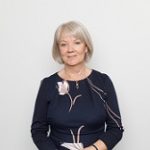Charities & Support Groups
Parliament reminded about Vision needs of the Homeless
Equitable access to eye care for those experiencing homelessness to be highlighted in Parliament
EQUITABLE eye care for people experiencing homelessness will be the focus of an event in Parliament next week.
Parliamentarians, policy makers, charities and eye care sector representatives will come together at the event on Tuesday 5 December with a shared ambition to promote eye health equality and drive policy change for vulnerable groups.
MP Marsha de Cordova, who is calling for a national eye health strategy in England, is hosting the reception that has been organised in collaboration with Specsavers as part of its mission to change lives through better sight and hearing.

Dame Mary Perkins, founder of Specsavers and patron of Vision Care for Homeless People, Lord John Bird, founder of Big Issue, will be among the speakers. The event will also showcase the stories of people with lived experience of homelessness. Stephen Pratt, who has experienced homelessness but now runs a Specsavers practice will also be attending the event.

Marsha de Cordova said: ‘Everyone should have equal access to eye care, especially those more at risk of permanent sight loss such as homeless people who are at a great risk due to barriers in accessing NHS funded eye tests.
‘It is fantastic to see the collaboration between businesses and charities like Specsavers, VCHP, and Big Issue and others to achieve equality and equity in eye health care for people experiencing homelessness.
That’s why I am pleased to be hosting the reception in Parliament on this important issue.’
Dame Mary Perkins explains that Specsavers has pledged to help people experiencing homelessness as part of its long-term commitment to improving eye care accessibility for all.
‘According to research, one in three people experiencing homelessness have sight issues, yet many face barriers to accessing the eye care they need. These include lack of eligibility for NHS funded sight tests and glasses, difficulty in accessing domiciliary services, and lack of provision for replacement glasses if lost, broken or stolen,’ she adds.
‘Specsavers is calling on the government to remove these barriers and ensure that people experiencing homelessness have the same access to eye care as the general population. This would not only improve their quality of life, but also reduce the burden on the health service, as many eye conditions are linked to other health problems, such as diabetes and hypertension.’
























